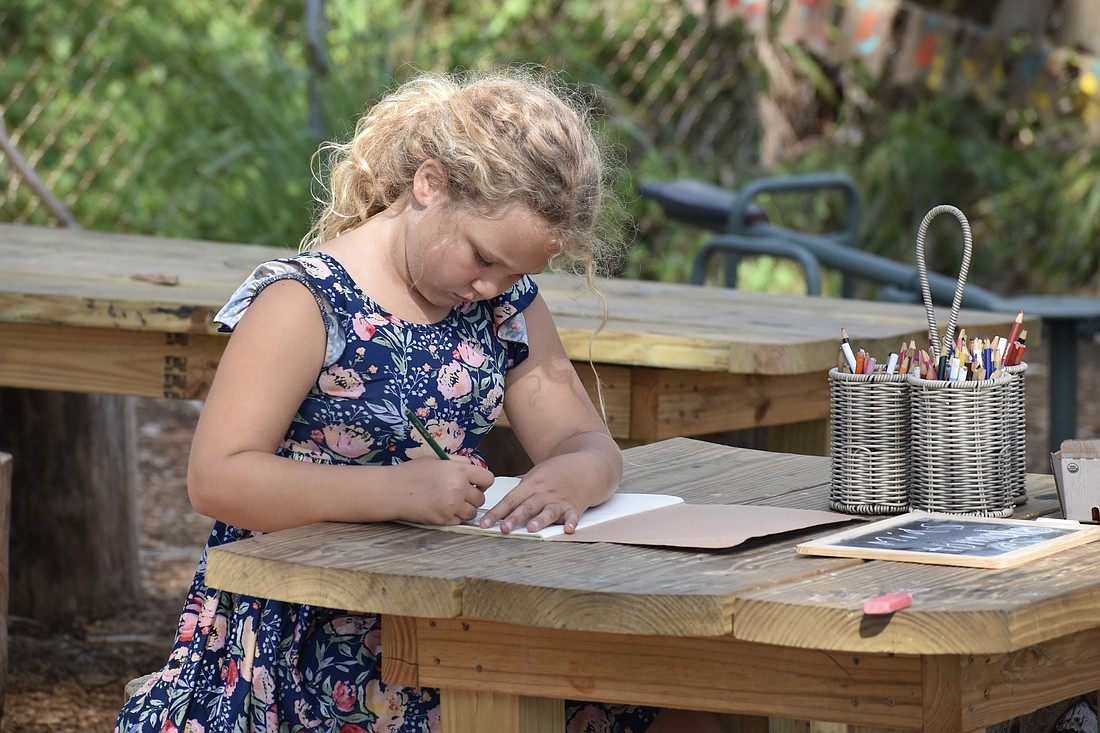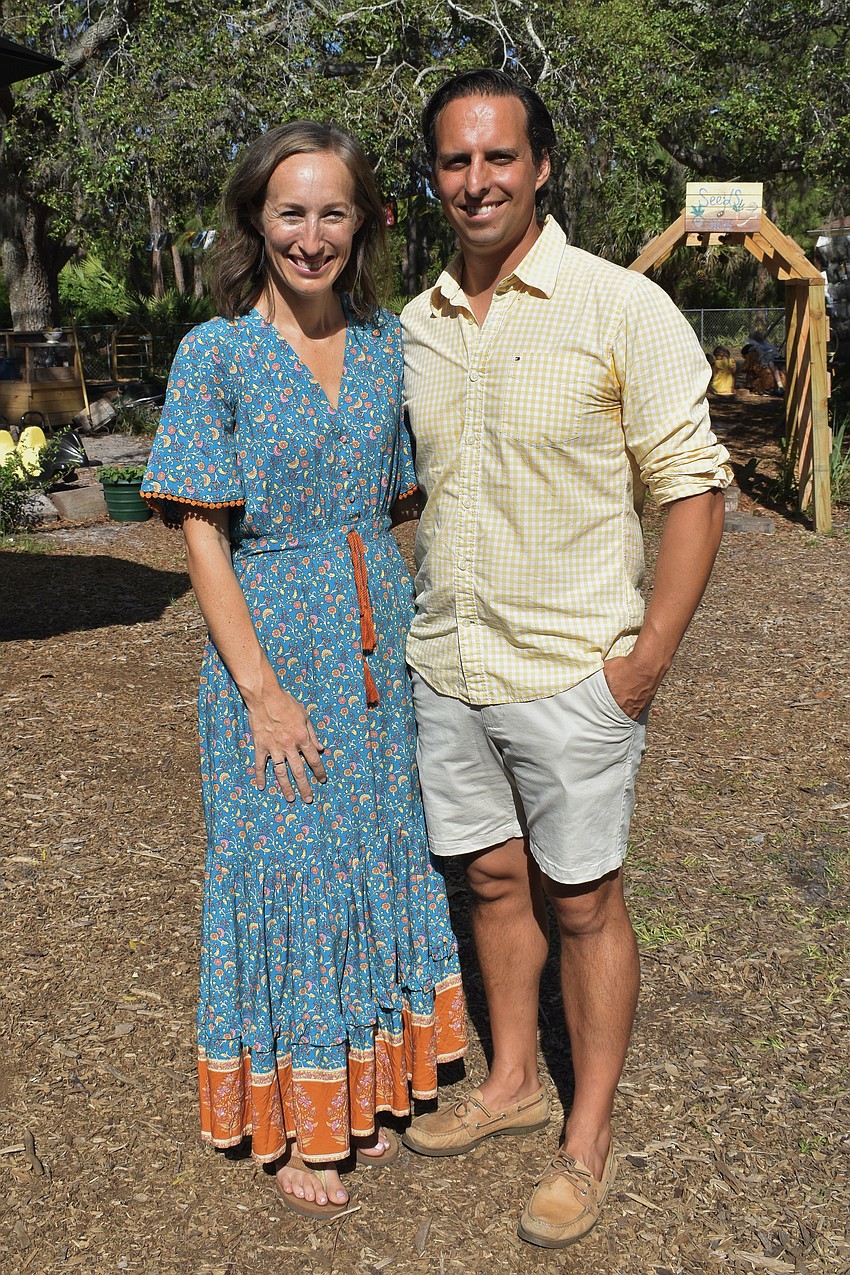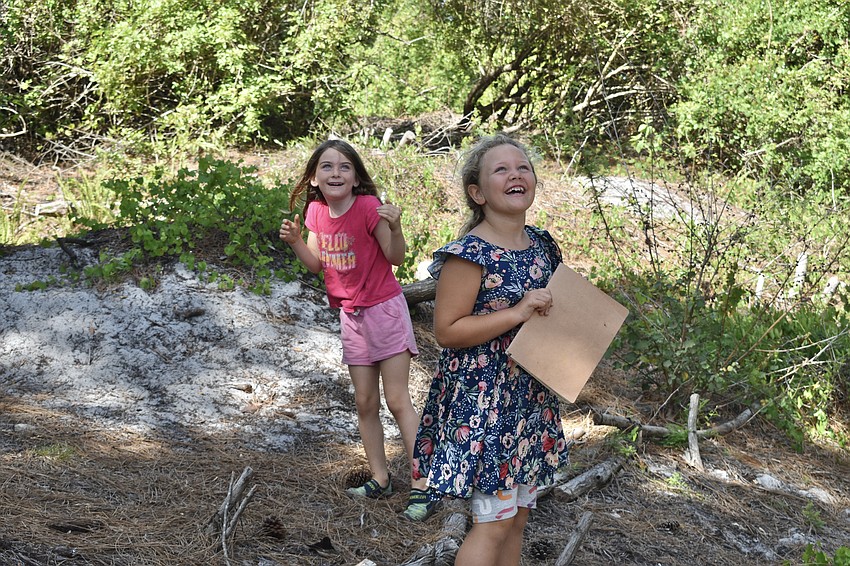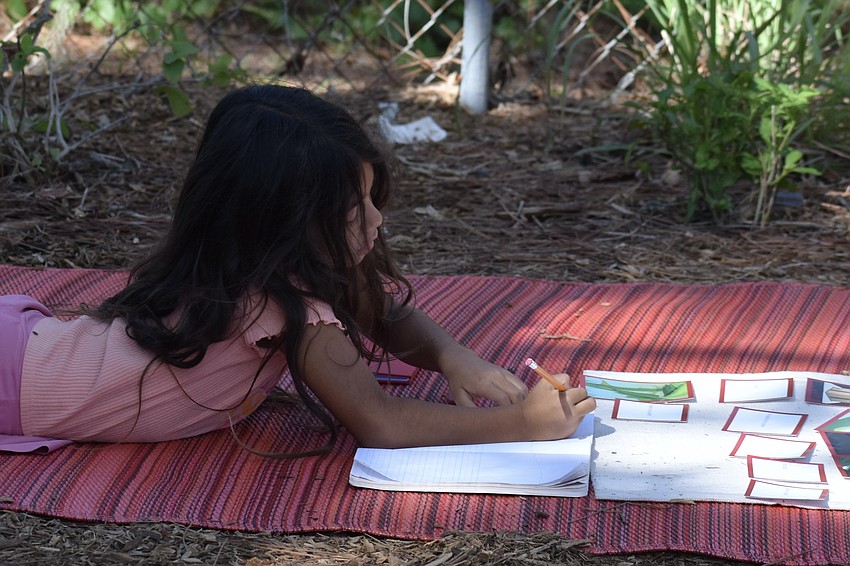- December 23, 2024
-
-
Loading

Loading

For 7-year-old Lillian Huff, the sight of a turkey vulture swooping overhead as she’s practicing reading, writing or arithmetic is a regular feature of her schoolroom.
About 70% of the day at Roots Nature & Leadership Academy is spent outdoors, said Briana Santoro, who founded the school in September 2022 on the property of Presbyterian Church of the Covenant.
That’s not to say that the rest of the schedule resembles an average school day. One of Huff's favorite recent activities was cooking her own tomato sauce from tomatillo tomatoes.
The daily schedule can involve growing herbs, mixing paints out of natural materials, or exploring the woods during Woods Wednesday, which is held each week.
“We really want to raise the whole child,” Santoro said.
The school serves students from pre-K to eighth grade. It has 25 students this year and is set to bring in 45 next year. The school combines nature-based learning with Montessori education, a teaching method that emphasizes students' natural interests and activities while using related hands-on materials.
“Instead of worksheets, they're using sticks to count out groups of 10," said Lindsay Richards, an educator for grades 1 and 2. "They’re doing skip counting by actually using jump rope and counting up to 468."
Richards said students benefit from studying skills beyond those in traditional academic subjects.
“All of those concepts are also really empowering — knowing that you can grow something yourself, feed yourself and treat ailments all yourself. You can tell these kids all feel super powerful.”
For Santoro, the mission began with her two sons, 5-year-old Kingsley Santoro and 7-year-old Austin Santoro, who both now attend Roots. After she couldn’t find the kind of school she envisioned for them, in October 2021, she decided to take the matter into her own hands.
Not long afterwards, she was met with a stroke of luck. While searching on Google Maps, she found the expansive property at Church of the Covenant just south of her home in Coral Cove. After contacting the church, she found out that the Weekday School of the Presbyterian Church of the Covenant, which had been located there since 1975, had closed in 2020 and that the church was seeking a tenant.

“I said, ‘I’ll be there in two minutes,” she said. “And the rest is history.”
Santoro said the school is founded on the premise that learning is more than just academics, as expressed by its four pillars. The first pillar is problem solving.
“I wanted (my sons) to have this sense that everything is figure-outable, and see every problem as an opportunity,” she said.
Meanwhile, she said “real skills” such as gardening, cooking, sewing, and woodworking fulfill the need for self-sustainability, the second pillar.
The third pillar is emotional intelligence. The school devotes a considerable amount of time to helping children understand emotions, teaching them how to label and express their feelings, strategies such as box breathing, and conflict resolution through role-playing.
The fourth pillar, leadership, she said ties into entrepreneurship — not merely in a business sense, but also in the sense of being able to achieve any goal.
“I wanted them to feel the sense that they could accomplish anything that they set their mind to, and that they have the confidence to be able to then go out and do that.”
One of the major differences for students at Roots is a sense of freedom — a model known as "freedom within limits."
Students set goals, which are aligned with county and state objectives, through the help of a teacher. Although the teacher will serve as their guide, the children have the flexibility to decide what time of day to work on different items and which ones they will choose that day.
Santoro said a student-led approach helps ensure that students of different ages and abilities reach their full potential. Some of the kindergarteners, she said, read at a third-grade level.
Richards said having taught all over the world, she had long dreamed of working in outdoor education.
“I walked in, and all the pieces fit,” she said. It was like someone had actually created my dream school. I always thought I was going to have to make it, and it actually existed. This has been the most magical year of teaching for me.”
Aspects of the outdoors permeate the learning environment.

For instance, the younger students, the Seeds, will bring in items that interest them (such as a shark’s tooth or a mushroom) and use cards provided by the teacher to finish a sentence about the item using phonetic units.
Each class is equipped with a garden that students tend. The school grounds feature a butterfly conservatory and a fully operating outdoor kitchen. An expansion will add sports fields to supplement the current basketball court, an area for practicing special skills, and a thatched-roof pergola and gardens.
Six-year-old Mia Williamson said she enjoys seeing the rabbits that inhabit the campus — including one named "Jack-Jack," who lives under one of the small barns where school materials are stored. She also likes seeing the bald eagles that nest in the woods.
Additionally, students learn a variety of special skills including music, yoga and meditation, archery, gardening, and cooking.

However, one familiar fixture of schools parents won’t find is grades. Instead of assigning grades, teachers track mastery through recording sheets, with small class sizes of 12-15 students allowing them to closely observe each student’s progress.
“What's more important is that a child has worked very hard toward accomplishing a goal and that they're very proud of themselves,” Santoro said. “Applying grades to that is unnecessary and has different challenges on both sides.”
She said children who receive good grades can end up exerting less effort, while students who receive low grades can develop perceptions of themselves as not being smart.
“We want to change the language around that,” she said.
According to instructors, the school's approach is indeed cultivating a love of learning. Santoro recounted an incident where she was told by a student’s mother that he had asked her for a multiplication table as a birthday present.
“These kids are problem-solving,” Santoro said. “They love being given the opportunity to share their knowledge, and that's what drives them. It's not about rewards; they’re so excited to share what they've learned.”
She and Richards said it's this passion that the school kindles in students that allows them to succeed academically amid the freedom they are offered.
"It's always just about inspiring excitement about every new concept that I teach," said Richards.